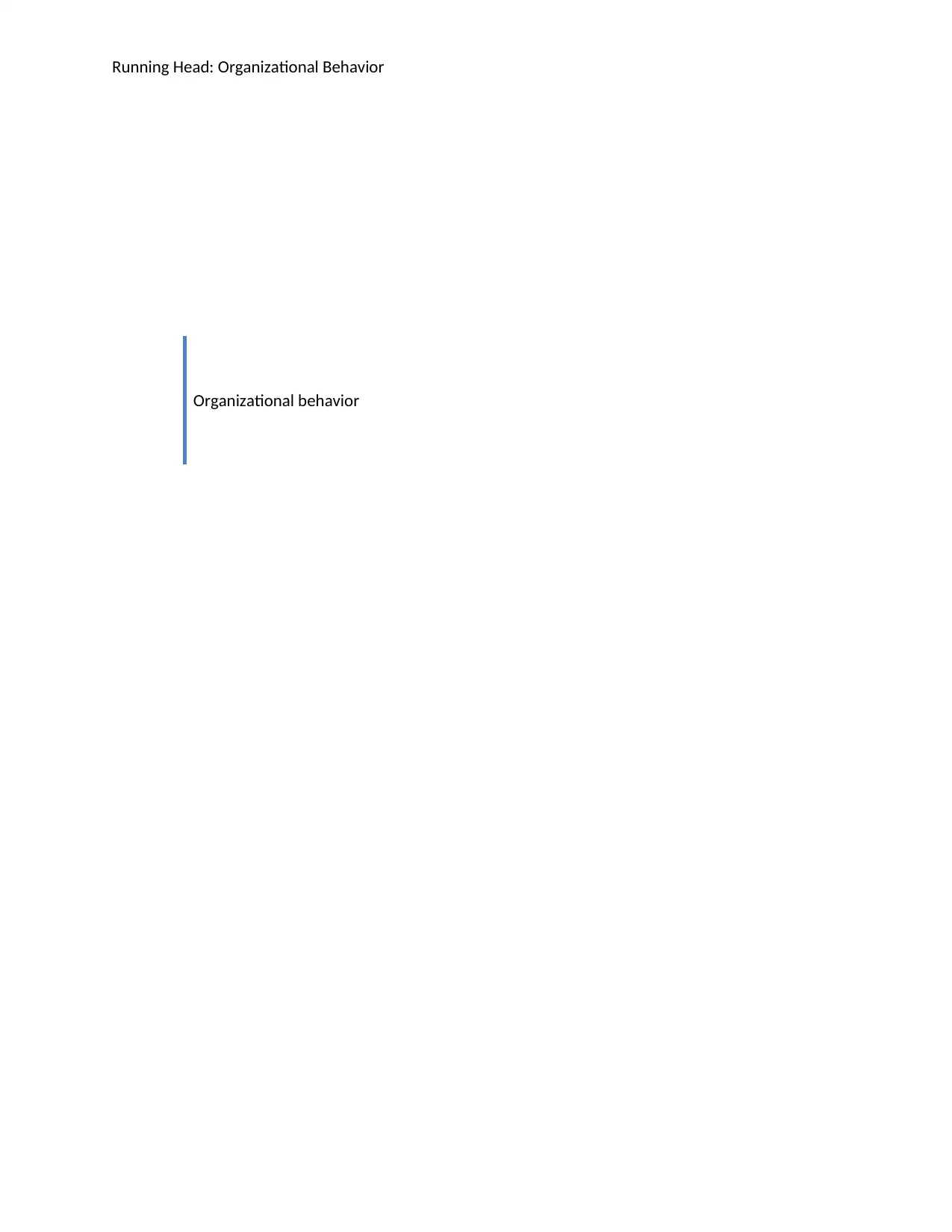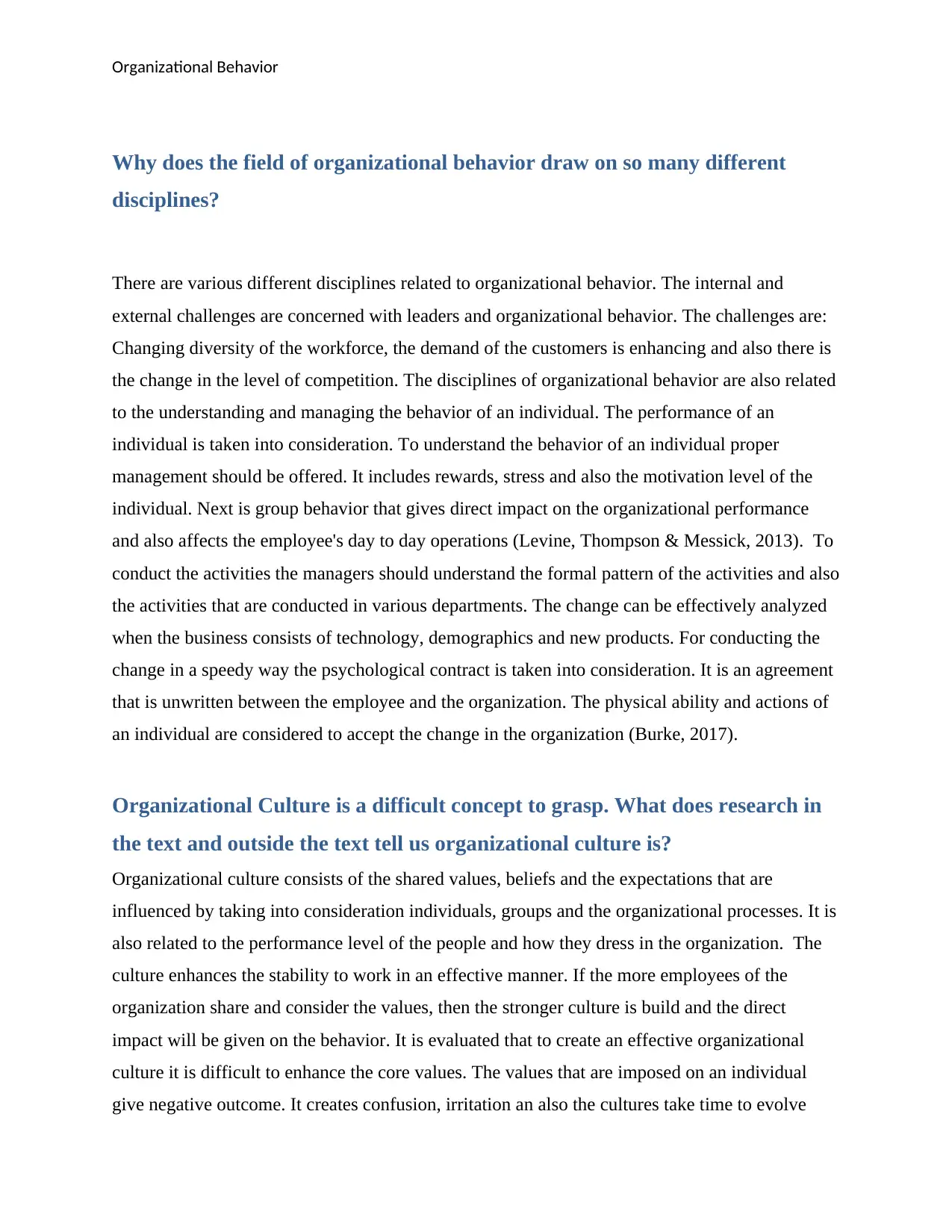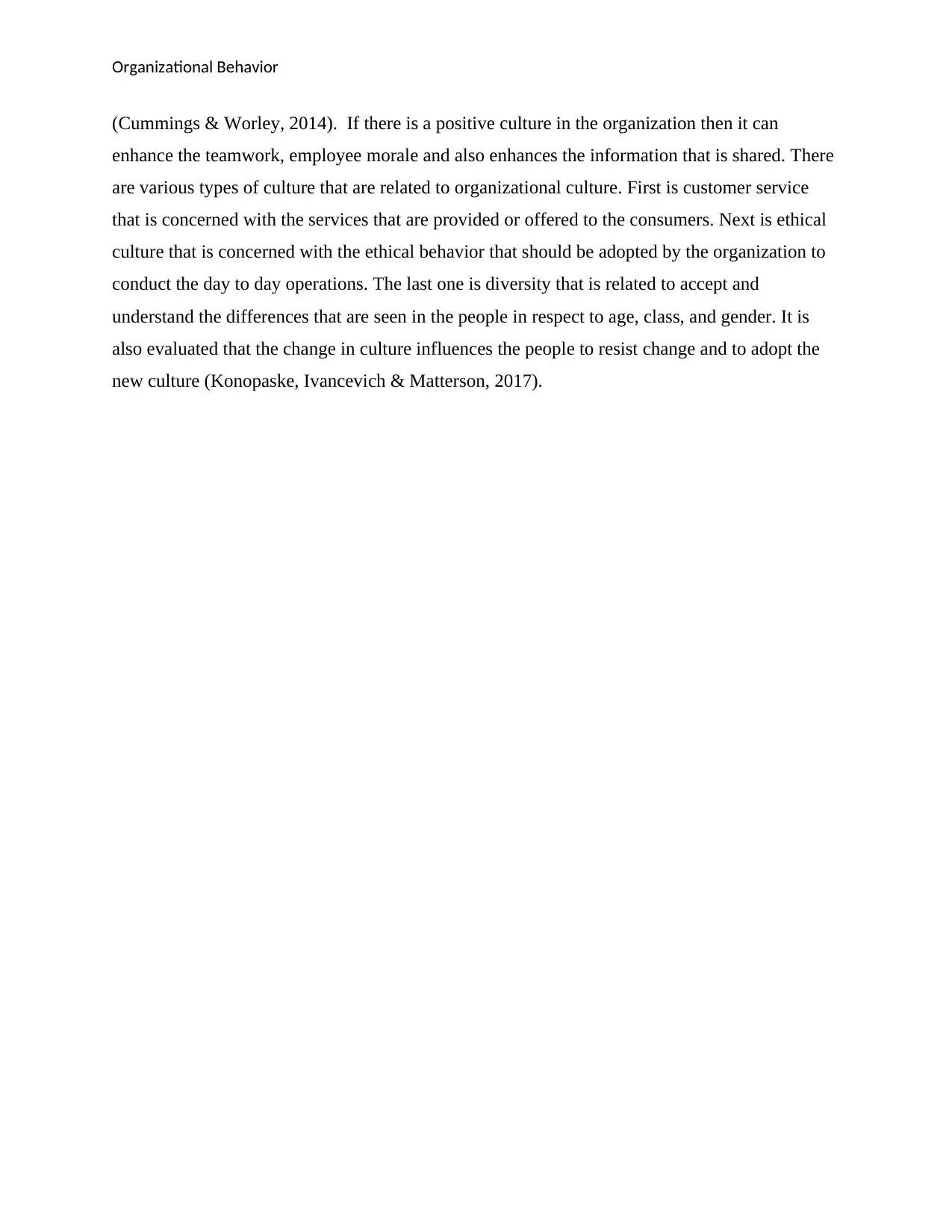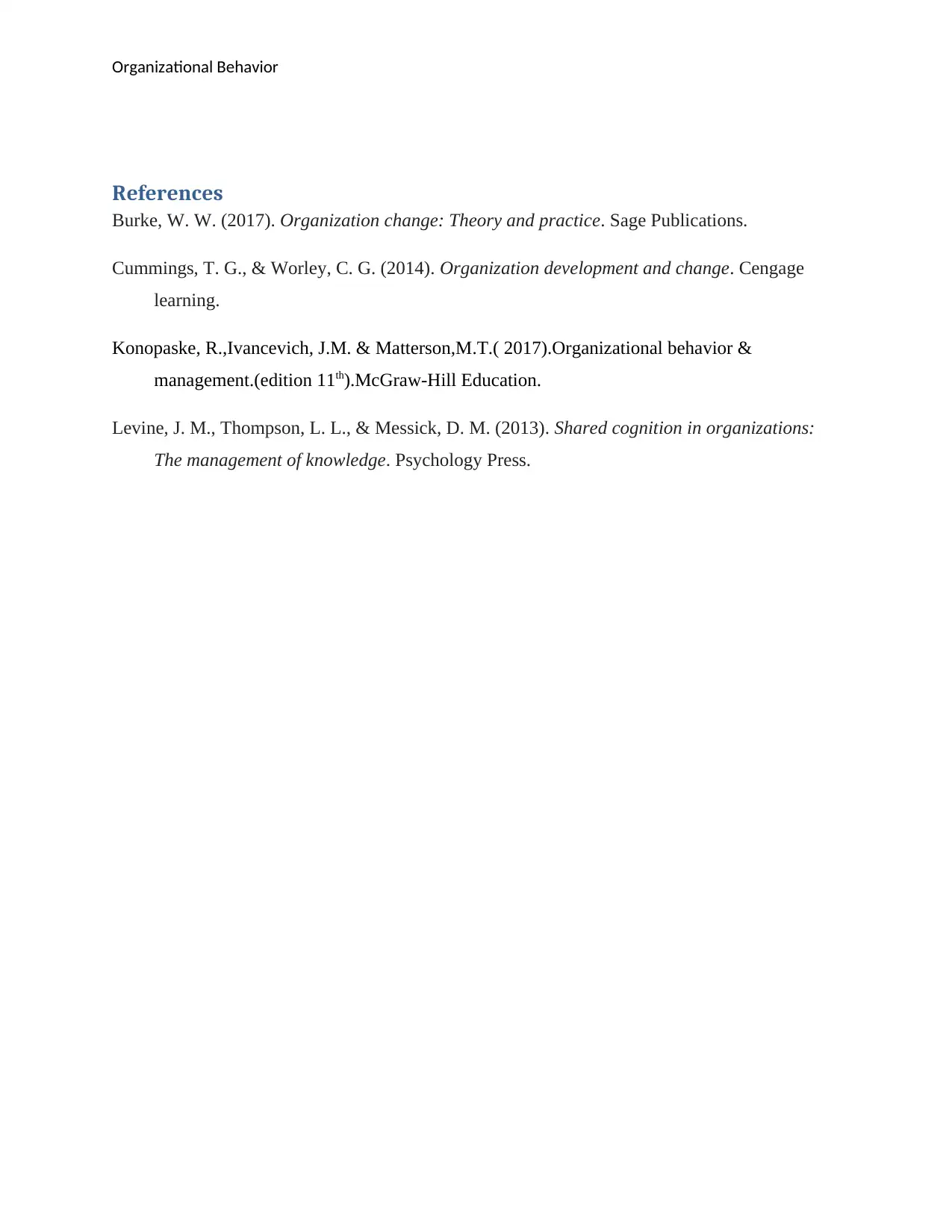Organizational Behavior: Exploring Workplace Dynamics and Challenges
VerifiedAdded on 2020/05/08
|4
|671
|133
Homework Assignment
AI Summary
This assignment delves into the realm of organizational behavior, exploring key concepts such as the diverse disciplines that contribute to understanding workplace dynamics. It examines the influence of individual and group behavior on organizational performance, emphasizing the importance of effective management strategies. The assignment also addresses organizational culture, defining its components and its impact on employee morale and teamwork. Furthermore, it highlights the challenges of managing change within organizations, considering factors like technological advancements and shifts in workforce demographics. References to relevant literature, including Burke (2017), Cummings & Worley (2014), Konopaske, Ivancevich & Matterson (2017), and Levine, Thompson & Messick (2013), support the analysis. The assignment further explores how organizational culture impacts customer service, ethical behavior, and diversity within the workplace, while also acknowledging the resistance to change that can arise. This assignment aims to provide a comprehensive understanding of organizational behavior's multifaceted nature and its implications for effective management.
1 out of 4











![[object Object]](/_next/static/media/star-bottom.7253800d.svg)